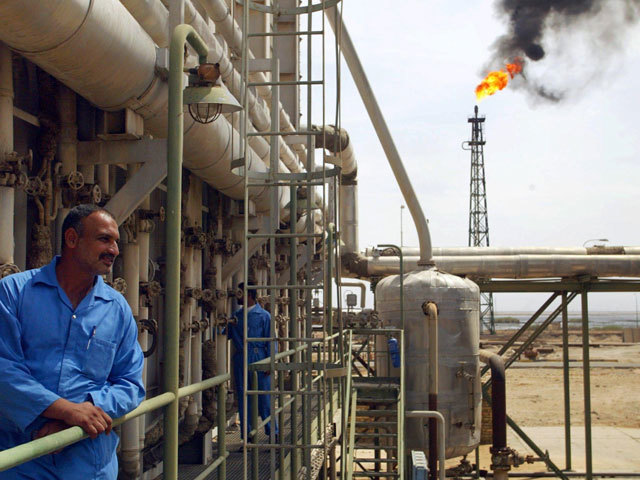
Iraqi’s oil exports from the south climbed to a record this month at the same time the self-ruled Kurds in the north are shipping crude independently, adding to a global supply glut as producers vie for market share.
Southern oil exports, representing the central government’s shipments, rose to 3.064 million barrels a day in July and will remain at about the same level for the rest of the month, Thaer Yassin, spokesman of the state-owned South Oil Co., said by phone on Monday. Exports were 3.020 million barrels a day in June, he said.
“We are increasing exports every month,” Yassin said. “The figure is a record.”
Iraq, the second-largest OPEC member, is boosting shipments as a worldwide glut driven by a U.S. shale boom prompts producers to pursue strategies to defend market share. Brent crude has fallen about 50 percent from last year’s high in June as the Organization of Petroleum Exporting Countries refrained from cutting output amid the highest level of American supply in more than three decades.
Brent for September settlement fell as much as 58 cents, or 1.1 percent, and was at $53.16 a barrel at 12:20 p.m. Singapore time on the London-based ICE Futures Europe exchange.
Kurdish Exports
The semi-autonomous Kurdistan Regional Government started to bypass the central government for all crude oil exports in June for the first time amid a dispute over revenue sharing, Safeen Dizayee, a KRG spokesman, said in a July 13 interview. Oil producers in the Kurdish region, including DNO ASA and Genel Energy Plc, are caught in the dispute between the Iraqi central government and the Kurds and are struggling to extract payments for their oil shipments.
The KRG region is exporting 600,000 barrels a day from Kurdish oil fields and the neighboring Kirkuk area independently of the central government’s oil marketing company, Ali Hussein Balou, an adviser to KRG Natural Resources Minister Ashti Hawrami, said Monday in a phone interview. The KRG will continue to export crude on its own until a deal is reached with the central government, he said.
Iraq’s minority Kurds, who historically have resisted control by Arab-dominated governments in Baghdad, are independently developing oil reserves they say may total 45 billion barrels, equivalent to almost a third of Iraq’s deposits, according to BP Plc data. The Kurds operate a separate military force, which last year occupied the long-disputed, oil- rich territory around Kirkuk as the Iraqi army fled from Islamist militants.